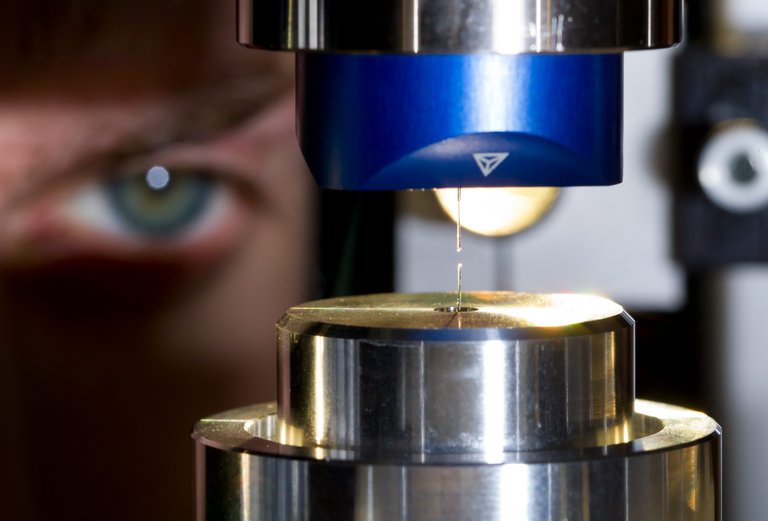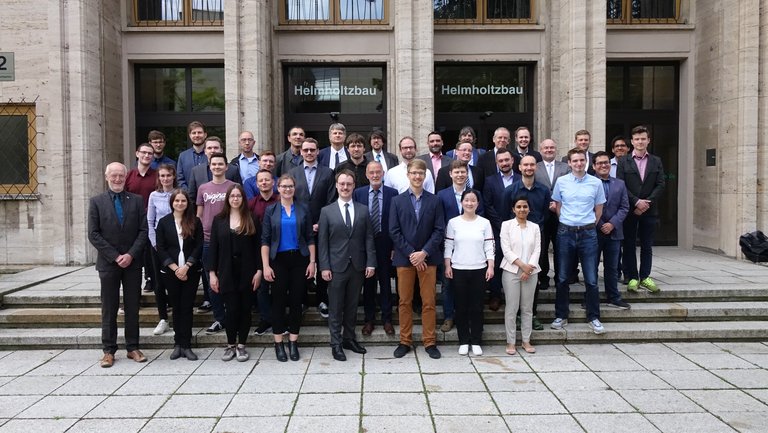The Research Training Group 3D-NanoFab at TU lmenau is being funded by the German Research Foundation (DFG) for a second time. With the 5.5 million euros granted to the Research Training Group for a second funding period by Germany's most important research funding institution, TU Ilmenau will now be able to continue its successful research and its promotion of young scientists in the field of nanofabrication for another four and a half years. The specialists produced by the Research Training Group help to meet the ever-increasing technical challenges in production due to the increasing miniaturisation of structures to sizes down to less than 10 nanometres.

Since 2017, the interdisciplinary Research Training Group "Cutting-edge and laser-based 3D nanofabrication in extended macroscopic workspaces" (3D-NanoFab) has offered young scientists the opportunity to conduct specialized cutting-edge research in a research and qualification program and to earn a doctorate at the highest level. When the Kolleg comes to an end in 2026, a total of 39 young doctoral students from all over the world will have been trained at TU Ilmenau to become experts in nanofabrication.
Within the framework of this structured research and qualification program, the young scientists will be deployed in three highly specialized research areas: the development of processes for production in the nanometer range, the control and regulation of fabrication machines for the high-precision positioning of machining tools, and the metrological validation of manufacturing results. All these research subprojects pursue one goal: tip- and laser-based 3D nanofabrication techniques in extended macroscopic working ranges.
With the help of new, self-developed techniques and processes, scientists at TU Ilmenau are researching innovative methods for the production of two- and three-dimensional structures down to the atomic scale. High-precision nano-positioning and nano-measuring machines based on Ilmenau technologies make use of the latest nano-fabrication techniques to create a wide range of future-oriented applications in the fields of electronics, optics and sensor technology - for use, for example, in medicine, energy and environmental technology or biology.
In a laboratory environment equipped with state-of-the-art technology, internationally renowned researchers teach the doctoral students of the 3D-NanoFab research training group theoretically and methodologically sophisticated, interdisciplinary specialist knowledge. During stays abroad at research institutions all over the world, the young scientists are given the opportunity to exchange ideas with top-class international scientists throughout their doctoral studies. Language courses and soft-skill offerings such as scientific work, presentation and lecture techniques, or time management also enable them to familiarize themselves with the research fields of the Research Training Group and to successfully complete their doctoral theses.
The Vice President for Research and Young Academics, Prof. Stefan Sinzinger, sees the extension of the DFG funding as recognition of the Research Training Group's work to date:
The Research Training Group 3D-NanoFab is an outstanding example of the internationally recognized interdisciplinary research achievements at TU Ilmenau. We are pleased that the international scientific reputation of the TU Ilmenau as a whole will benefit from the sustained funding of the DFG for the extremely successful holistic engineering approach to a demanding research topic.
The networking of young scientists with each other and with renowned researchers in concrete research projects, as practiced in the 3D-NanoFab Research Training Group, will have an impact on the engineering courses of study at the TU Ilmenau as a whole. Students in courses such as mechanical engineering, mechatronics, electrical engineering or computer science are already involved in research projects at an early stage. In this way, they already acquire professional skills and competencies in scientific work during their studies, which they can use in their future careers - whether in industry or at universities and other research institutions.

The first ten doctoral students completed their scientific research on schedule in June 2020 after working intensively on the project. Two participants even made it in just two and a half years. The outstanding achievements are reflected in the impressive final results. Four doctoral candidates graduated with the distinction "summa cum laude", four with "magna cum laude" and two with "cum laude". The series of defenses was further extended by the scientific debate on the doctoral thesis of the coordinator of the Research Training Group, Ingo Ortlepp, also with excellent marks, who thus completed his doctorate together with the first generation of doctoral students.
Since April of this year, Prof. Steffen Strehle, head of the Department of Microsystems Engineering at TU Ilmenau, and Prof. Thomas Fröhlich, head of the Department of Process Measurement Engineering, have been heading the 3D-NanoFab Research Training Group. They succeed the previous directors Prof. Eberhard Manske and Prof. René Theska, who helped establish the TU Ilmenau's world-renowned expertise in the field of nanometrology. The two new directors of the Research Training Group remain committed to the tradition of conducting basic research in the field of nanotechnology at an international level while at the same time enabling new applications for the production of the future.
Contact
Prof. Steffen Strehle
Speaker 3D-NanoFab Research Training Group

